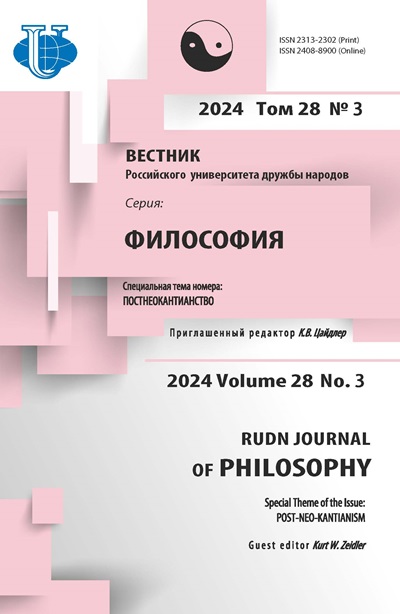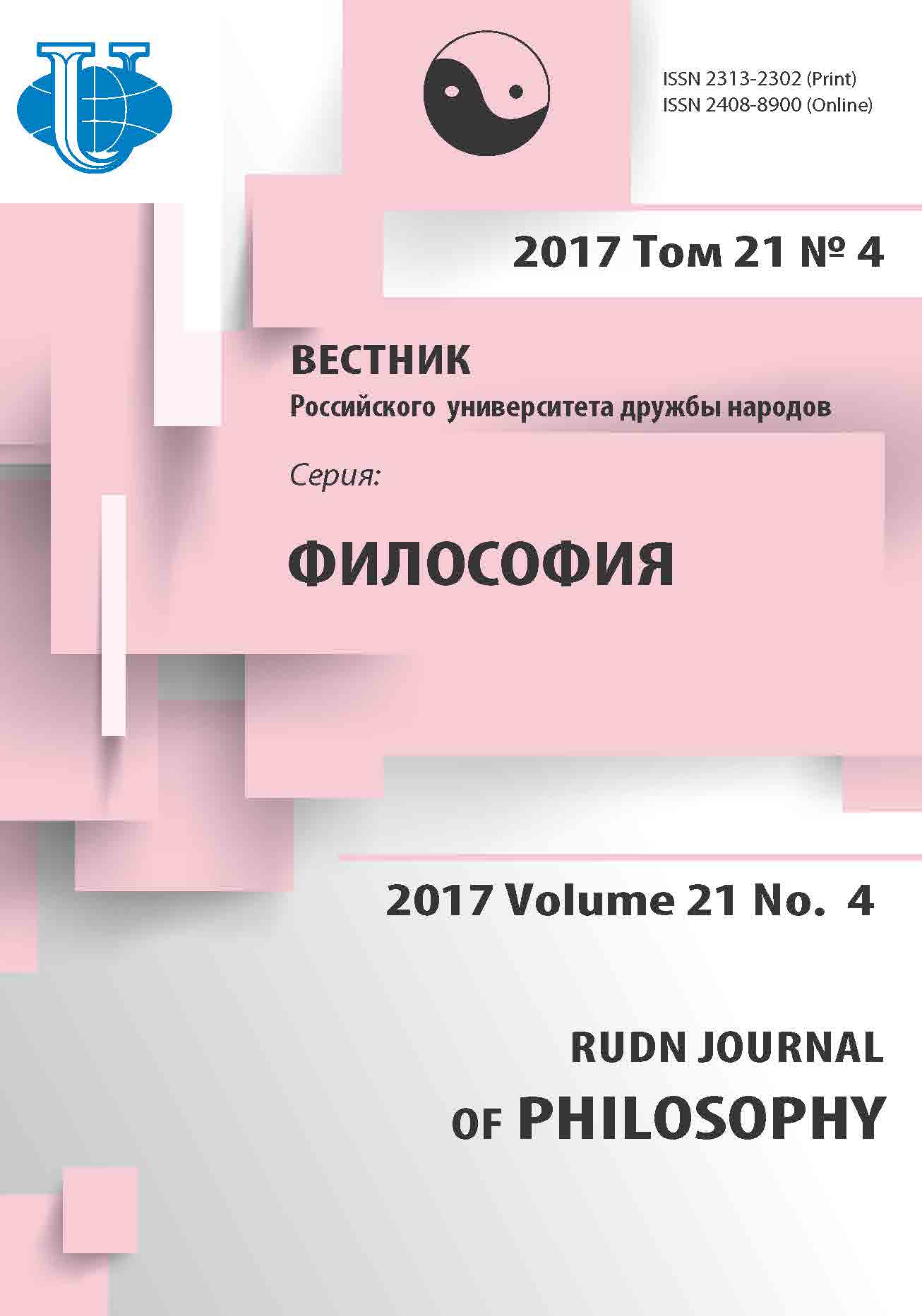THE MEANING OF THE DISTINCTION BETWEEN FANTASY AND IMAGINATION FOR THE CONSERVATIVE DISCOURSE: THE PHILOSOPHY OF ROGER SCRUTON
- Authors: Glazkov NS1
-
Affiliations:
- Higher School of Economics - National Research University
- Issue: Vol 21, No 4 (2017)
- Pages: 592-601
- Section: Articles
- URL: https://journals.rudn.ru/philosophy/article/view/17670
- DOI: https://doi.org/10.22363/2313-2302-2017-21-4-592-601
Cite item
Full Text
Abstract
The author points out and explains the quiddity of the relationship between conservatism and aesthetics as a philosophical discipline. It is shown that the aesthetic distinction between fantasy and imagination, set forth by S.T. Coleridge, is a serious tool of conservative critique and self-critique. From the conservative point of view, imagination is a creative faculty, while fantasy is a passive one, i.e. dependent hugely on passions. It is for that reason that the latter is often understood as a preliminary source for utopian or, in other words, wishful thinking. The discussed distinction fits in the general pattern of conservative epistemology, the greatest exponent of which was D. Hume. The critical uses of the distinction today are partially exposed by Roger Scruton, a British conservative philosopher, in works such as “The Uses of Pes-simism: and the Danger of False Hope”, “Modern Culture and Thinkers of the New Left”. The author argues that the distinction is apt to play not only critical but also a constructive role in shaping the conservative discourse.
About the authors
N S Glazkov
Higher School of Economics - National Research University
Author for correspondence.
Email: lazkovnikita@gmail.com
Глазков Никита Сергеевич - аспирант школы философии Национального исследовательского университета «Высшая школа экономики»
20, Myasnitskaya Str., 101000, Moscow, Russian FederationReferences
- Conservative Texts: An Anthology. Basingstoke: Macmillan; 1991.
- Dunn T. Dr Scruton and Mr Hyde? Journal Of Area Studies. Series 1;6(12):31—32.
- Mannheim K. Konservativnaya mysl’. Sotsiologicheskiye issledovaniya. 1993;(9). (In Russ.)
- Vigus J. James Vigus reads: Alan P.R. Gregory, Coleridge and the Conservative Imagination (Mercer UP, 2003). The Coleridge Bulletin. 2005;26.
- Mannheim K. Konservativnaya mysl’. Sotsiologicheskiye issledovaniya. 1993;(1). (In Russ).
- Coleridge ST. Biographia Literaria. In: Kol'ridzh ST. Izbrannyye trudy. Moscow: Iskusstvo; 1987. (In Russ.)
- Gregory APR. Coleridge and the Conservative Imagination. Macon, Ga.: Mercer University Press; 2003.
- Eliot TS. Wordsworth and Coleridge. In: Eliot T.S. Naznacheniye poezii. Stat'i o literature. Kiev: AirLand; 1996. (In Russ.)
- Collingwood RG. Principy iskusstva. Moscow: YAzyki russkoy kul'tury; 1999. (In Russ).
- Scruton R. Modern Culture. London: Continuum; 2005.
- Narskiy IS. David Um. Moscow: Mysl'; 1973. (In Russ.)
- Burke E. Iz «Zapisnoy knizhki» E. Berka. In: Burke E. A Philosophical Enquiry into the Origin of Our Ideas of the Sublime and Beautiful. Moscow: Iskusstvo; 1979. (In Russ.)
- Um D. Sochineniya. In 2 vol. Vol. 2. Moscow: Mysl'; 1996. (In Russ.)
- Scruton R. The Uses of Pessimism: and the Danger of False Hope. Oxford: Oxford University Press; 2013.
- Jameson F. Politika utopii. Khudozhestvennyi zhurnal. 2011;(84) [cited 2017 June 27]. Available from: http://moscowartmagazine.com/issue/13/article/173. (In Russ.)
- Eliot TS. Traditsiya I individual’nyi talant. In: Eliot T.S. The Waste Land. Moscow: Ladomir: Nauka; 2014. (In Russ.)
- Scruton R. Fools, Frauds and Firebrands: Thinkers of the New Left. New York: Bloomsbury; 2015.
















